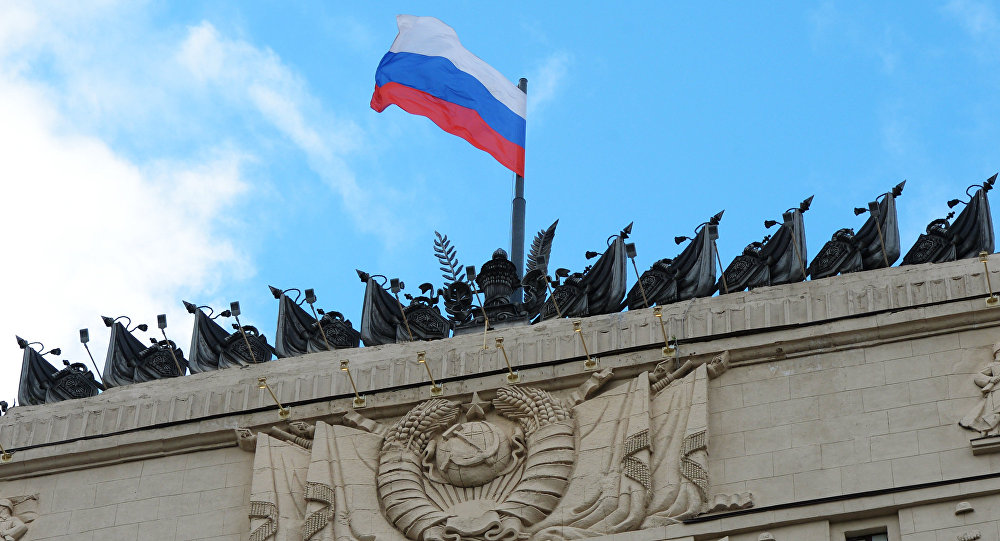Turkey’s choice: Russia-Iran or US-Europe?
Murat Yetkin/ Hurriyet
5 أبريل 2018

The answer to the question in the headline is obvious, but the current scene may be confusing for some. Just an hour before the joint press conference of Turkish President Tayyip Erdoğan, Russian President Vladimir Putin and Iranian President Hassan Rouhani started in Ankara, German Ambassador to Turkey Martin Erdmann held a lunch meeting with the press. “There isn’t any logical place for Turkey’s geopolitical location other than the Euro-Atlantic sphere. And I’m saying this on the day after the ground was broken for a Turkish-Russian nuclear power plant,” Erdmann said.
It is a fact that Turkey is a member of the Western alliance NATO, with the U.S. as its most important military partner. Ankara is also a long-time candidate to join the European Union, having a Customs Union with Brussels and conducting half of its foreign trade with EU countries.
But it is also a fact that neither Turkey nor its Western allies have been able to satisfy their expectations enough from each other – either in the past or especially in recent years.
If the Turkish president is happy to host and cooperate with the Russian and Iranian presidents on a key security matter like Syria, then not only German Chancellor Angela Merkel and U.S. President Donald Trump but all Western allies involved in security cooperation with Ankara (such as on migration control or cooperation on foreign terrorist fighters) should think again. If Turkey wants to buy Russian S-400 air defense systems instead of NATO-interoperable American Patriots then its Western allies should start considering their political excuses for not delivering defense systems to Turkey. (Following the Akkuyu ceremony, Putin reportedly promised to Erdoğan a rather urgent delivery of S-400s in July 2019, before the Turkish presidential and parliamentary elections in November.)
Turkey has a number of problems regarding the state of its democracy. Those problems have gotten heavier due to the declaration of the state of emergency declared after the July 2016 coup attempt. Emergency rule restricts certain rights and freedoms and bypasses certain powers of parliament, while judicial independence and media freedom is also getting worse. However, Western partners should carefully consider whether the best way to secure a better working democracy in Turkey and better cooperation on security is to keep pushing the country away (only to get upset when Ankara ends up in the frame with Russia and Iran, like yesterday).
Germany, as Turkey’s most important political, economic and social partner in the EU, which has millions of Turkey-origin people living in it, started a thawing process with Ankara after its September 2017 election campaign. Erdmann’s meeting yesterday was part of that process. But – like Germany and the EU – Turkey also wants to see certain promises kept. Perhaps the best way for both sides to get what they want is for them to both take simultaneous steps, without waiting for the other side to move first.
And instead of trying to ignore the Astana process between Turkey, Russia and Iran for de-escalation in Syria, the EU should perhaps try to help it along. All three presidents underlined yesterday that the Astana process is not an alternative to the Geneva process but simply a compliment to it. If that process is intended for the good of the people of the region, it also means it is good for the security of EU countries.
 عن أمل جنبلاط المتجدد: لبنان يستحق النضال
عن أمل جنبلاط المتجدد: لبنان يستحق النضال
 صحافيون أم عرّافون!
صحافيون أم عرّافون!
 ماذا يجري داخل أروقة بيت الكتائب المركزي؟
ماذا يجري داخل أروقة بيت الكتائب المركزي؟


 عن الخرائط التي تُرسم والإتفاقات التي تتساقط!
عن الخرائط التي تُرسم والإتفاقات التي تتساقط!
 “الإنحراف في الحياة”/ بقلم كمال جنبلاط
“الإنحراف في الحياة”/ بقلم كمال جنبلاط
 هاشتاغ #صار_الوقت يحل أولاً في حلقة جنبلاط
هاشتاغ #صار_الوقت يحل أولاً في حلقة جنبلاط
 طاولة نقاش عن أزمة الصحافة في جامعة AUST
طاولة نقاش عن أزمة الصحافة في جامعة AUST
 عبدالله: ليظهر لنا وزير مكافحة الفساد حرصه في صفقات البواخر والفيول
عبدالله: ليظهر لنا وزير مكافحة الفساد حرصه في صفقات البواخر والفيول
 عبدالله: غريب أمر وزارة مكافحة الفساد!
عبدالله: غريب أمر وزارة مكافحة الفساد!

 Comment to Uri Avnery: How Sad What Is Looming Ahead
Comment to Uri Avnery: How Sad What Is Looming Ahead
 “Not Enough!”
“Not Enough!”
 … لمن لم يقرأ يوسف البعيني/ بقلم وسام شيّا
… لمن لم يقرأ يوسف البعيني/ بقلم وسام شيّا
 كمال جنبلاط في مولده الأول بعد المائة: تعاليمه وأفكاره ما زالت الحلّ/بقلم عزيز المتني
كمال جنبلاط في مولده الأول بعد المائة: تعاليمه وأفكاره ما زالت الحلّ/بقلم عزيز المتني
 رئيس حزب/ وليس (… سابقاً)/ بقلم د. خليل احمد خليل
رئيس حزب/ وليس (… سابقاً)/ بقلم د. خليل احمد خليل
 التوازن السياسي في لبنان
التوازن السياسي في لبنان
 لبنان… مشاريع انقلابية مؤجلة
لبنان… مشاريع انقلابية مؤجلة
 جنبلاط وحَمَلة أختام الكاوتشوك
جنبلاط وحَمَلة أختام الكاوتشوك
 Le Liban est un symbole de tolérance
Le Liban est un symbole de tolérance
 Our Automated Future
Our Automated Future
 The True Origins of ISIS
The True Origins of ISIS
 Les Misérables vs. Macron
Les Misérables vs. Macron
 عذراً أيها المعلم/ بقلم مهج شعبان
عذراً أيها المعلم/ بقلم مهج شعبان
 رساله الى المعلم / بقلم ابو عاصم
رساله الى المعلم / بقلم ابو عاصم
 إلى روح القائد والمعلم كمال جنبلاط/ بقلم أنور الدبيسي
إلى روح القائد والمعلم كمال جنبلاط/ بقلم أنور الدبيسي
 أسرار وعناوين الصحف ليوم الجمعة 14 كانون الاول 2018
أسرار وعناوين الصحف ليوم الجمعة 14 كانون الاول 2018














